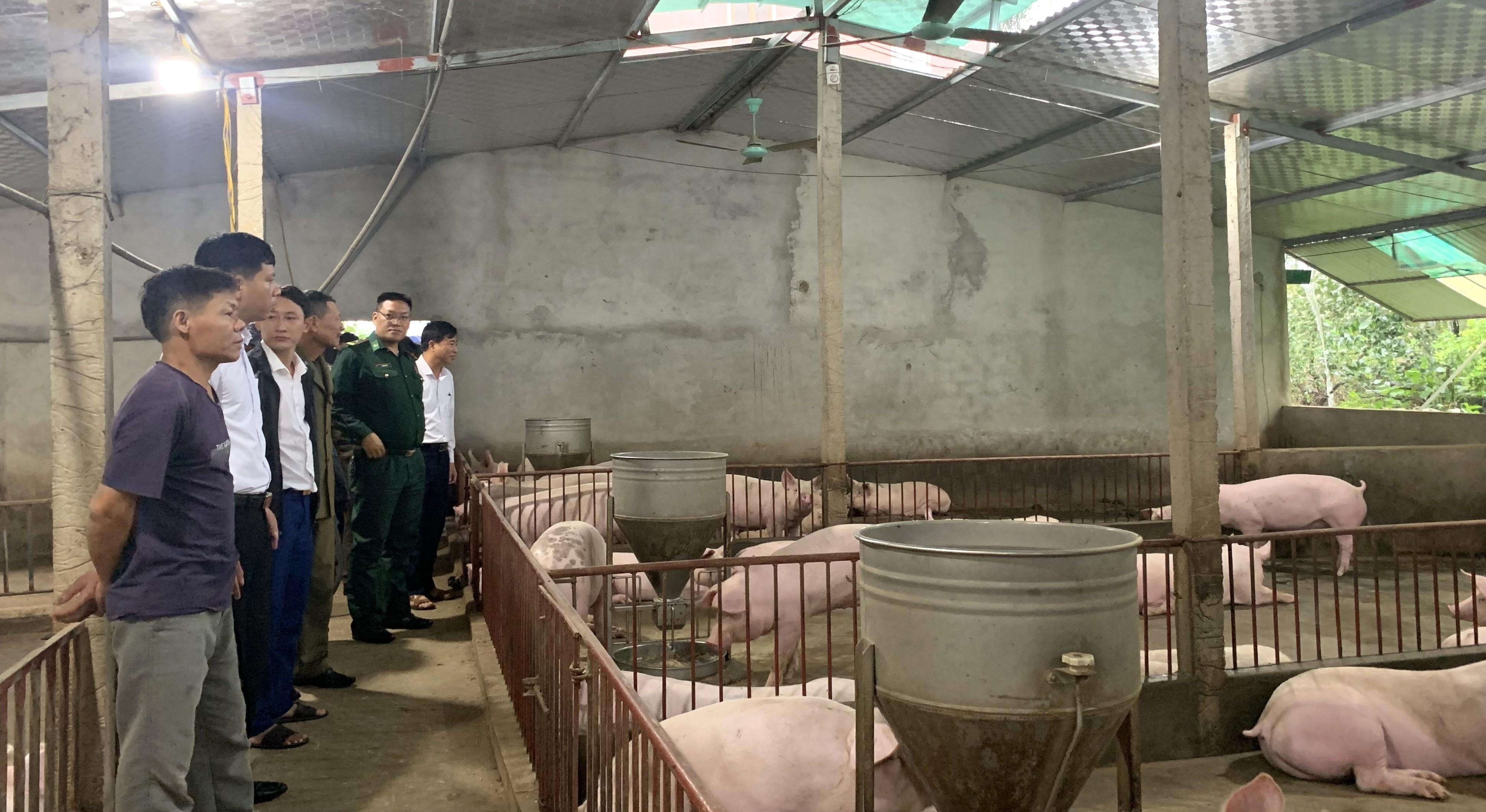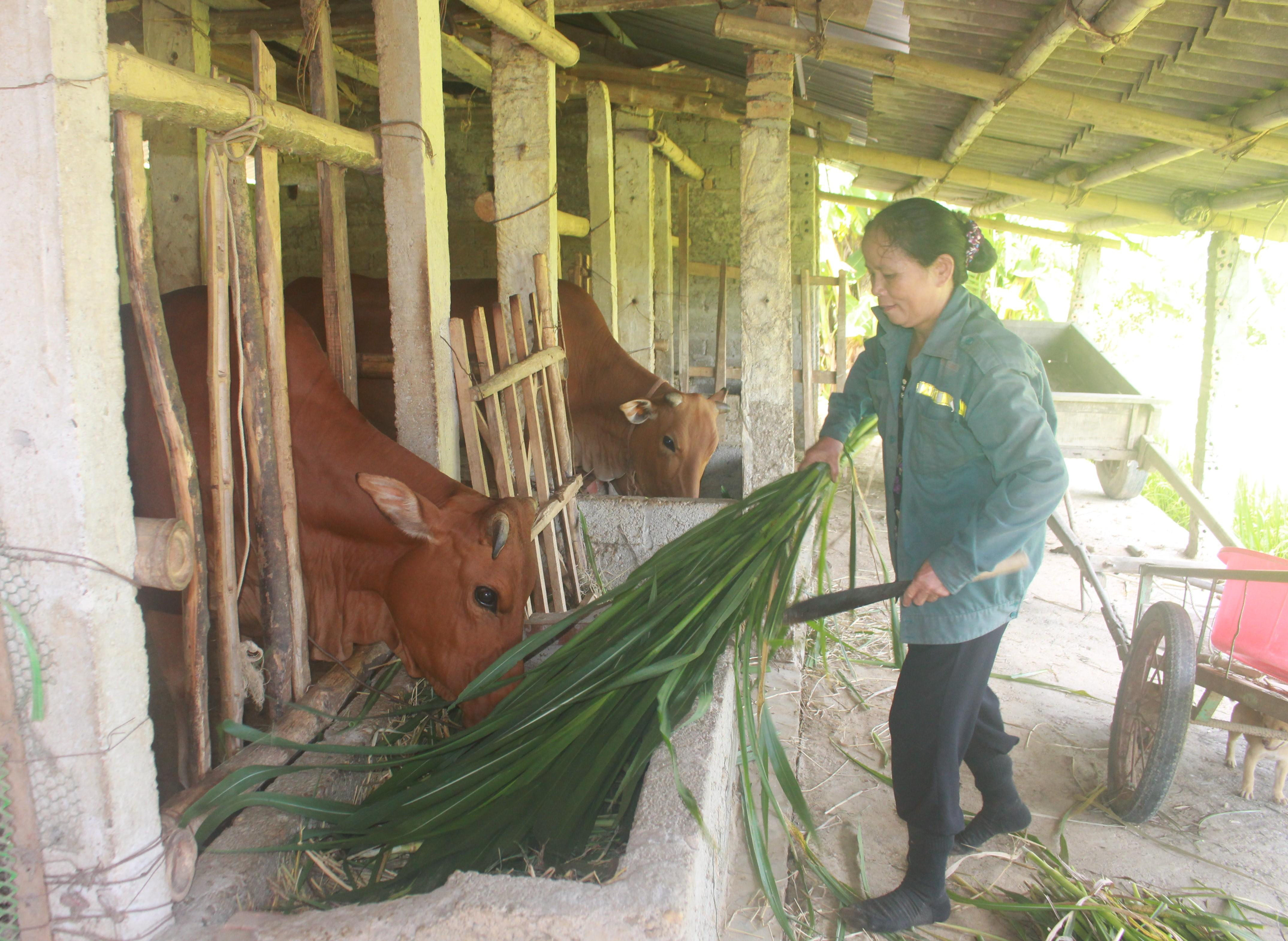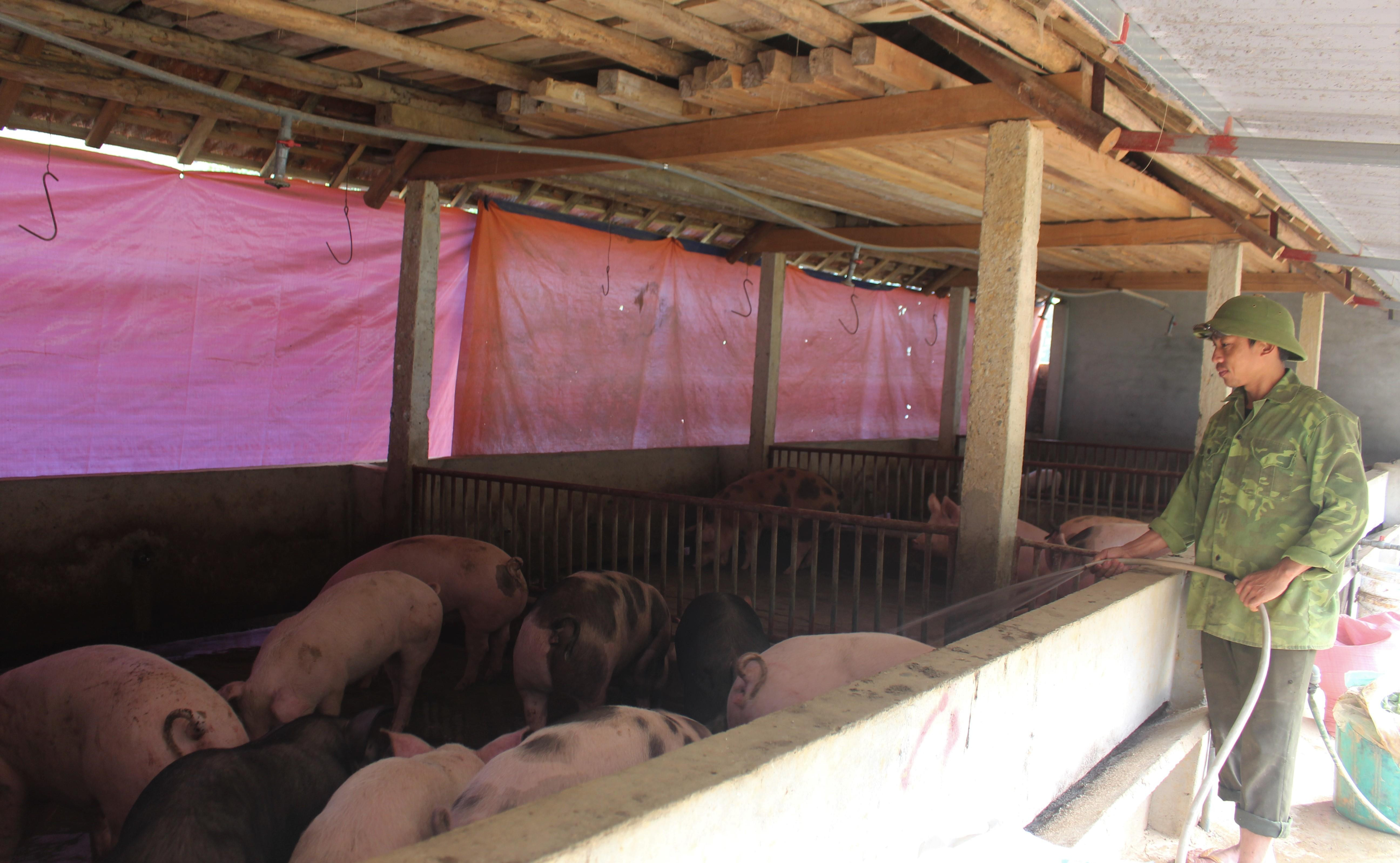Anh Son farmers raise livestock in a biosafety direction
(Baonghean.vn) - Livestock farming households in Anh Son district have switched to the trend of developing livestock farming in the direction of biosafety in livestock and poultry, both to prevent diseases, save costs, minimize environmental pollution and bring in high and stable income.
Owning a large-scale pig farm, in the past 3 years, Mr. Dang Ngoc Khuyen's family in Nhan Tai village, Cam Son commune has applied bio-safety farming. Mr. Khuyen said that his family has invested in building a solid barn system, far from residential areas, installing ventilation systems, automatic feeding troughs and following periodic cleaning and disinfection procedures.
 |
Since implementing biosafety farming, the pigs of Mr. Dang Ngoc Khuyen's family in Nhan Tai village, Cam Son commune have always been healthy and safe during epidemics. Photo: Thai Hien |
In addition, livestock waste is collected and treated, people and vehicles entering and leaving the barn must be disinfected, eliminating the risk of bringing pathogens from outside into the farm. Breeds, feed, and veterinary drugs are also strictly controlled, with clear origins. His family raises pigs in batches, raises them one batch, then sells them one batch. After each sale, the barn is thoroughly cleaned according to recommendations, and a pause of at least 1 week is allowed before starting to raise a new batch.
Since implementing biosafety farming, Mr. Khuyen's family's pigs have always been healthy and safe during epidemics. Currently, his family raises 3 litters of pigs per year, each litter has 300-400 pigs. After deducting expenses, his farm earns more than 350 million VND per year.
With the motto "prevention is better than cure", Ms. Le Thi Nga's family in Vinh Tho village, Vinh Son commune has applied biosafety farming methods for their herd of 5 cows. Ms. Nga said: Previously, her family and many local households raised semi-grazed cows. During the day, the cows were taken to the hills and fields to graze naturally, and in the afternoon, the grass was cut for additional food. However, when raised this way, the cows were raised with many other herds, so they often got sick, especially foot-and-mouth disease and septicemia. Therefore, for the past 2 years, her family has invested in rebuilding barns, converting 2 acres of ineffective land to grow grass to raise cows, and at the same time applying biosafety farming measures.
 |
Anh Son farmers apply biosafety farming methods on their cows. Photo: Thai Hien |
According to Ms. Nga, to raise livestock effectively, her family always focuses on biosafety farming methods. In addition to strict management of food, water, and regular vitamin supplementation, the barn must always be kept clean and airy, and cow manure must be limed or fermented with microorganisms to disinfect pathogens and protect the environment. In the dry season, cows often suffer from foot-and-mouth disease and lumpy skin disease, so to avoid disease, her family lets the cows stay in the shade and supplements vitamin C. In winter, the barn is kept warm and the cows are supplemented with organic enzymes to increase their resistance, thanks to which, her family's cows grow very well and rarely get sick.
In recent years, diseases in livestock and poultry have continuously had extremely complex and unpredictable developments, the most common being avian influenza, lumpy skin disease, African swine fever... From experience in disease prevention and control, the Animal Husbandry and Veterinary Department of Anh Son district recommends that farmers should boldly switch from traditional farming to biosafety farming.
 |
The Animal Husbandry and Veterinary Department of Anh Son district has recommended that livestock farmers should boldly switch from traditional livestock farming to bio-safe livestock farming to limit disease outbreaks. Photo: Thai Hien |
Mr. Nguyen Xuan Ung - Deputy Director of Anh Son District Agricultural Service Center said: Biosafety for farms and households is the synchronous implementation of veterinary hygiene measures to prevent pathogens from outside from entering and destroy pathogens existing inside livestock facilities by disinfection methods. Therefore, in recent years, Anh Son District Agricultural Service Center has always been interested in and recommended that people switch to closed-farm livestock farming to ensure biosafety, limit epidemics, and strictly comply with regulations on environmental protection through the application of new processes and technologies such as building biogas tanks, biological enzymes, composting organic fertilizers... to treat the environment in livestock farming.
On the other hand, the Center also reviewed and re-evaluated the current livestock situation to effectively implement the project on developing high-tech farm economy in Anh Son district, period 2021-2025, orientation to 2030.


